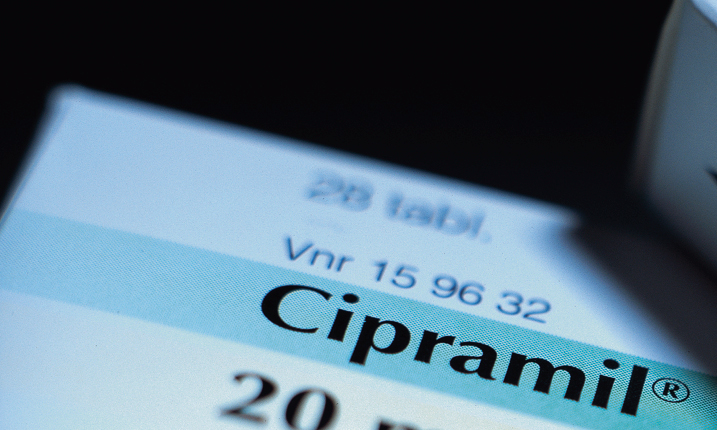Pay For Delay Tactics Quashed by Antitrust Regulators
The efforts employed by large European pharma firms to keep low-cost generic versions of their medicines off the market are being quashed by the region’s antitrust body, mirroring the campaign that is taking place across the Atlantic.

Settlements between branded drug manufacturers and generic firms to delay copies of blockbuster medicines have been deemed essentially harmful to consumers by antitrust regulators in Europe and in the US. Yesterday (19thJune), the European Commission (EC) fined Danish pharmaceutical company, Lundbeck, and eight generic drug producers a total of €146 million ($195 million) for delaying the supply of a cheaper version of the pharma giant’s anti-depressant drug, Citalopram (marketed as Celexa or Cipramil) to consumers.
Unacceptable pacts
Over ten years ago, the Nordics second largest drug-maker, Lundbeck, orchestrated an intricate ‘pay for delay’ agreement with competitors including Ranbaxy Laboratories and Merck KGaA concerning its blockbuster antidepressant. In the first case of its kind, the EC came to the conclusion that these deals were damaging to patients and government payers. Under this agreement, prices were kept artificially high, said the body, as generic products would reduce the cost for patients and health services by 90 per cent.
“It is unacceptable that a company pays off its competitors to stay out of its market and delay the entry of cheaper medicines,” said Joaquín Almunia, the European competition commissioner.
After the basic patent for the citalopram molecule expired in 2003, instead of competing, a number of generic producers agreed not to enter the market when they were offered substantial funds and other incentives from the Danish firm. Lundbeck paid tens of millions of euros to the generic producers and purchased their stock for the sole purpose of destroying it, according to a statement from the European regulator. But while the contract gave Lundbeck the assurance that the generic firms would stay out of the market for its duration, the non-branded drug manufacturers were given no guarantee of market entry thereafter.
“Agreements of this type directly harm patients and national health systems, which are already under tight budgetary constraints. The Commission will not tolerate such anticompetitive practices,” said Almunia.
Heightened regulatory landscape
The case follows a decision on Monday (17thJune) by the US Supreme Court, which gives the Federal Trade Commission (FTC) the ability to prosecute pharma companies that employ nefarious ‘pay for delay’ methods. Increasing the number of generic drugs to the market is intended to benefit consumers as the FTC reports that ‘pay for delay’ deals cost US citizens $3.5 billion a year in higher drug prices.
European Union officials said yesterday’s decision was not timed to coincide with the Supreme Court case. Yet their intention to clamp down has become glaringly apparent. In January, Johnson & Johnson and Novartis were the subject of an EU investigation over similar deals that may have hindered the sale of generic versions of pain killer fentanyl in the Netherlands. The Commission is also looking at an agreement by Cephalon and Teva that may have delayed generic versions of Cephalon’s product, Provigil, and has highlighted a deal between French drugmaker Servier and several generics companies to postpone the release of the heart drug, perindopril.
In addition, earlier this month, the EC adopted a proposal for a Directive that aims at making it easier for victims of anti-competitive practices to obtain damages.
Protests of innocence
Historically, pharmaceutical companies have said that ‘pay for delay’ deals are not illegal as they simply provide a certain amount of breathing space for branded producers, and generic firms are amply compensated during the waiting period. As such, Copenhagen-based Lundbeck maintains it has done nothing wrong and is set to appeal the EC decision – a feeling that is somewhat echoed among the other participants of the deal. “We are surprised and disappointed that the EU commission has reached this erroneous conclusion, which we totally disagree with, and it is therefore our intention to appeal,” said Ulf Wiinberg, Lundbeck’s CEO.
“It is wrong and extremely misleading” of the commission “to claim that these agreements have delayed the marketing of citalopram copies and thereby violated competition laws,” said Wiinberg.
The EC report shows some positivity in the sector’s trustworthiness in that the vast majority of patent settlements are unproblematic from the point of view of antitrust rules. At the same time, however, the number of patent settlements has significantly increased. This suggests that the actions of the regulators – both in Europe and the US – have not deterred pharmaceutical companies reaching patent expiration of blockbuster from attempting legitimate settlements. In fact, it may have simply encouraged them to be more cautious – and clever – in their dealings.
